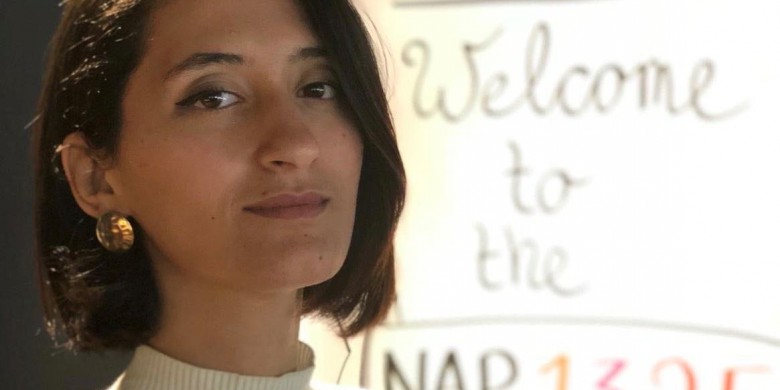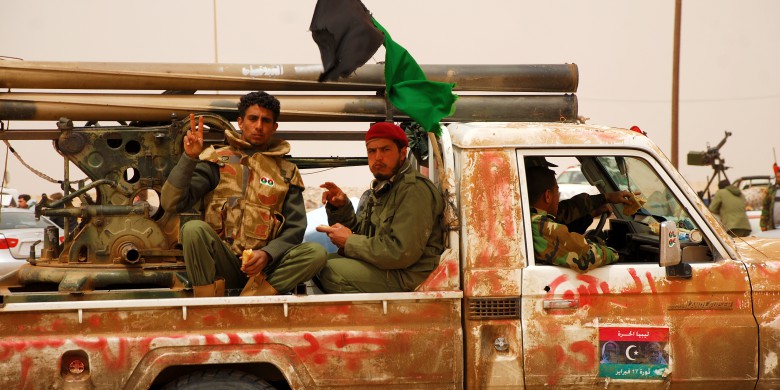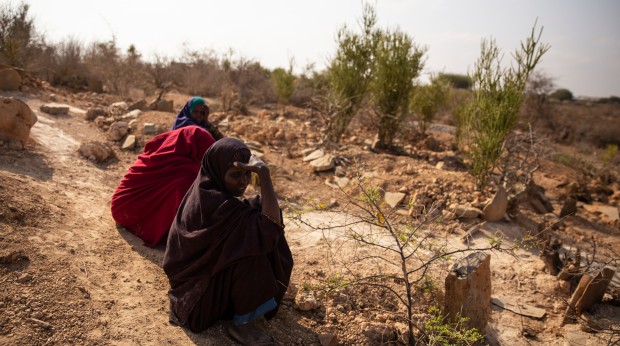
A Polarised Nation during a Global Pandemic: the Libyan Predicament
At times of acute crisis, it is easy to lose sight of the bigger picture. A global pandemic, like the one we are facing today, is a perfect example of where our natural response is to focus solely on the aspects which are most acutely affected: a nation’s healthcare system and its economy. However, the trickle-down effect of COVID-19 can seriously affect other crucial areas of life, particularly peace and conflict.
CSPPS has launched this series of articles, which zooms in on the role of civil society in supporting local response action. Via interviews with frontline responders, we discuss the short-term and long-term effects that COVID-19 is having on prospects for peace and stability in their countries.

War-torn and deeply polarised since the 2011 overthrow of Gaddafi’s 42-yearlong dictatorship, Libya’s civil society organisations have taken on the difficult task of supporting the transition of their nation towards a unified and resilient society. As the country’s opposing national authorities are preoccupied with fighting each other, the Libyan population is largely left to its own devices.
Zorg Madi, Program Manager at the Tamazight Women’s Movement and CSPPS member in Libya, discusses the role of civil society in the Libyan attempt to stabilise a polarised nation, whilst facing COVID-19 during the Second Libyan Civil War, and its manifold of ongoing alternate conflicts, in an interview with the CSPPS Secretariat. For the fifth article in this series, Madi shares with us the reality of the Libyan people, and the ongoing battle for civil society to be consulted and included in both the response to COVID-19 as well as other essential policy processes of peacebuilding and statebuilding, such as this year’s Voluntary National Review (VNR) which is meant to take to stock of the status of the implementation of the Sustainable Development Goals in Libya.
The current violent conflict primarily revolves around the struggle between the UN-backed Government of National Accord, led by Prime Minister Fayes al-Sarraj, based in Tripoli, the country’s capital in the West, and the opposition forces of the Libyan National Army, led by Field Marshal Khalifa Haftar who is based in Benghazi in the East. However, the polarisation of Libya does not end there: other militias preside in the lawless South of the country, which are in open conflict with each other and control the porous southern border. Libya’s rich, tribal diversity adds another dimension to the predicament the country is already in, and the lack of a single government, which represents this diversity, is a major hurdle to national stability.
Moreover, since Haftar’s assault on Tripoli one year ago, tensions have only intensified, despite several attempts to broker a ceasefire between the warring parties. Even more so, as the international community fails to agree upon a common stance towards the warring parties in Libya. All international initiatives to resolve the struggle for power among the Libyan conflict actors have failed to take root, not in the least because many of the international actors involved are far from impartial mediators. Many countries have stakes of their own in the conflict, driven by their own geopolitical and economic motivations.
Haftar receives military support in the form of arms and personnel from Russia, the United Arab Emirates, Egypt and France and has been scrutinised for employing thousands of mercenaries from various African countries. Internationally recognised Prime Minister Al-Sarraj, on the other hand, receives support from Qatar and Turkey, and deploys Syrian fighters. As the country deals with two rival governments, plus an increasingly divided southern region, a coherent response to COVID-19 seems to be unobtainable.
“Southern Libya is the most vulnerable place in the country. It has no functioning institutions and no government, as neither is capable of penetrating the area because of the ongoing conflict between the many different militant factions and tribes. The population has practically no access to services. Doctors and equipment are sparse. As of now, there are no confirmed cases of COVID-19 in the South of Libya just yet, but once the virus reaches that region too, the consequences are going to be catastrophic,” Madi states.
In the rest of Libya, although in a marginally better position, the population faces the terrible consequences of the war, in addition to the spread of the virus, on a daily basis. Economically speaking, the country finds itself in a permanent state of crisis, and the insufficient liquidity of the banks prevents families from withdrawing money, which significantly raises the level of fear and insecurity amongst the general population.
According to a joint statement on Libya by several UN agencies including the WHO, at least 15 attacks on health care facilities have taken place in 2020, of which one facility was dedicated to the treatment of COVID-19. Libya’s health care system was already frail before the start of the pandemic, but as the warring parties purposefully target hospitals in each other’s zones of control, the chance to withstand COVID-19 diminishes by the day.
“Seeing how other nations with functioning health systems, such as Italy, and Tunisia, were floored by COVID-19 sparked a lot of fear amongst our people. They started to take preventative measures themselves, attempting to wash their hands more often, socially distancing themselves and trying to remain at home. But when there is shelling going on and staying at home is often not the safest option because of it, self-imposing a lockdown becomes increasingly difficult.”
Civil society organisations in Libya are now taking on a dual role: not only do they continue their regular peacebuilding work, attempting to mitigate and manage violence and conflict, they now also have to raise awareness amongst the general population and attempt to provide people with the necessary equipment to avert the spread of COVID-19, such as masks, gloves and hand sanitizer. Moreover, they are setting up platforms for doctors to allow them to network with and inform local communities, whether they are doctors from Libya, or from the diaspora.
“The COVID-19 response is not very government driven. Yes, both governments do implement measures, but they often function to oppress the people and reiterate their own legitimacy as the ruling party. But whatever is happening in Libya right now regarding the pandemic is very people-driven, in a very organic way, coming from civil society.”
Madi explains how the internationally recognised government based in the West has tried to allocate funds for the COVID-19 response to all local municipalities and government bodies in the nation, regardless of their allegiance to either side. However, those falling under the Government of National Accord (GNA) in the West have subsequently denied the allocation of funds and accused the GNA of supporting Haftar by attributing the biggest fund for the Eastern region. Both sides have their own, parallel institutions, hence rolling out a nation-wide response is out of the question. The only institution that applies to both governments is the National Centre for Disease Control, which has 30 local branches throughout the country. Unfortunately, it does not seem able to deal with a pandemic effectively, and the ongoing conflict is making an effective response to COVID-19 even more difficult.
“The people who had to flee their houses, away from Southern Tripoli, they are truly struggling. They have no home, and they experience violence, rape, shelling and shooting every day. This is their reality right now,” Madi says, as she sketches us an already sombre picture of Libyan daily life. For women, the impact of COVID-19 in war-torn Libya is especially large, as recently highlighted in a policy brief jointly written with fellow CSPPS member, Cordaid. Gender-based violence is on the rise, with several women having been killed by their husbands in lockdown since the outbreak of the pandemic, and the risk of contagion is higher, as they are often employed in the health and social care sector. Notwithstanding, the impact of the pandemic, combined with the ongoing war, on innocent civilians, male or female, is abhorrent.
The Civilian Casualties Report by the UN Support Mission in Libya for the first quarter of 2020 documented at least 131 civilian casualties, amongst whom 64 have died. This was an increase of 45%, compared to the last quarter of 2019. The leading cause of civilian casualties was ground fighting, with 73% of the casualties having been occasioned by the use of heavy weapons such as rockets, artillery and mortars, as well as small arms fire. Targeted killings by the Libyan National Army were the second cause of civilian casualties, with air strikes and improvised explosive devices following third and fourth.
Madi’s organisation’s own estimates, however, are much higher: more than 800 civilians are thought to have died over the last three months. “Many people have lost their lives”, confirms Madi, “this number only shows you the impact this war is having, and how fragile we already are. COVID-19 will be a disaster for us.” Most of the casualties fall within the Western part of the country, as they are under constant attack by the Libyan National Army, led by Haftar.
However, the situation for the people in the East is also dire: Haftar has replaced the mayors of the municipalities with military officials, in order to deal with COVID-19 or to control the population.
“The people suffer many human rights violations,” Madi continues, “people are threatened by both parties, and the situation is used to gain more control over their regions. Many doctors in the Eastern part, which is under Haftar’s control, try to speak up and inform the population, but they are accused of working against the government. One doctor got kidnapped the other day, as he tried to address the issue of the lack of facilities and equipment to deal with the pandemic. Once you criticise their military power, you are a traitor. You are seen as a threat to national security.”

Unfortunately, the oppression of voices is a constant in Libya. This year, the country is undertaking its first Voluntary National Review as part of the follow-up and review of progress towards the implementation of the 2030 Agenda for Sustainable Development. Although Libya’s recently submitted key messages regarding the VNR state that ‘Libya’s Voluntary National Report on Sustainable Development Goals was prepared in the context of a broad community participation led by the Ministry of Planning through the Libyan Forum for Sustainable Development as a platform for dialogue, interaction, exchange of experiences, coordination of efforts and integrating and promoting the participation of all stakeholders’, the reality turns out to be very different.
Civil society organisations have only had the chance to emerge after the fall of Gaddafi in 2011, and they still struggle to have their voices heard. Madi explains how the authorities and security actors tend to perceive civil society organisations as traitors, working against their regimes rather than with them, especially as they collaborate with international actors. CSOs, their members and activists are put in a vulnerable position whenever they speak up, either internationally or towards their own government.
In line with this reluctance to collaborate with Libyan civil society, Tamazight Women’s Movement’s recent attempts to liaise with the Ministry of Planning, which is responsible for the roll-out of the VNR, have fallen on deaf ears. Nonetheless, Tamazight Women’s Movement has set up a coalition of civil society organisations across Libya in order to produce a civil society spotlight report to inform their government of their on-the-ground insights about the implementation of the Sustainable Development Goals (SDGs), taking on the risk of repercussions.
“As our national institutions and government are weak themselves, we are forced to take on this risk. We need to ensure that the peacebuilding and statebuilding process of Libya, and the road towards the achievement of the 2030 Agenda continues. It is the only way forward,” Madi explains. Working towards more peaceful, just and inclusive societies, the provision of access to justice for all and the building of effective, accountable and inclusive institutions at all levels, as stipulated by SDG 16, is at the very core of this effort.
A continuation of peacebuilding and statebuilding efforts is indispensable, as the country’s institutions and governance structures are badly damaged. Besides, after years of killing and destruction, many Libyans struggle with their mental health. “Everyone is traumatised because of all this violence,” she states, “the men that return from the frontlines, but also everyone else, because we are constantly under fire. And now we are faced with COVID-19 as well. This can no longer go on.” The incorporation of psychosocial support is therefore equally as important when thinking of strengthening Libya’s health care facilities.
Libya is frail, economically, politically, and socially. And the global pandemic is distracting the international community, as their own nations are suffering, too. But our responsibility towards the Libyan population remains an indisputable fact. Especially as several parts of that same international community is responsible for certain aspects of the ongoing conflict within the borders of the Libyan nation.
“The enablers of this violence are foreign interferers: it is international military support which enables national actors to continue to pursue a military solution. Libya has become a proxy conflict. Political inability or lack of will from foreign countries to put pressure on states that intervene in Libya militarily, or on the national conflict actors themselves, is allowing this situation to continue, and to worsen. All we want now, is for this war to end. Just to stop this constant state of war. We want a ceasefire, one that is sustained this time. So we can deal with this pandemic, and build an equal and unified Libya, at last.”
As CSPPS, we call upon the international community to keep looking outward, and at each other, our actions in the realm of peace and conflict, and their consequences. We urge nations, civil society organisations and institutions worldwide to hold each other accountable for fuelling conflict elsewhere for our own economic or political gain, and to put pressure on the warring parties of Libya. During a pandemic, continued polarisation is a recipe for disaster. We need to come together, as a unified world, and respond coherently to conflict, as well as to COVID-19. Again, we urge warring parties everywhere to adhere to UN Secretary General Guterres’ call for a global ceasefire, and facilitators of conflict to stop their damaging endeavours. Libya needs peace, and so does the fight against COVID-19. That is, if we are serious about tackling this threat to humanity, and serious about achieving a more sustainable world by 2030.
Article by Charlotte de Harder - CSPPS

